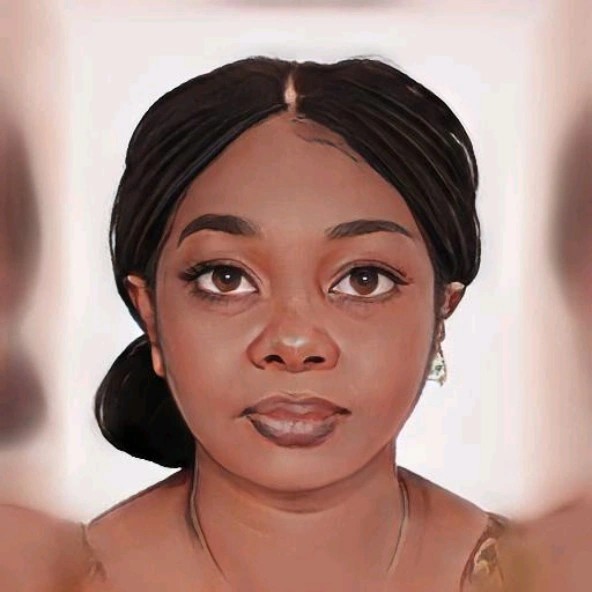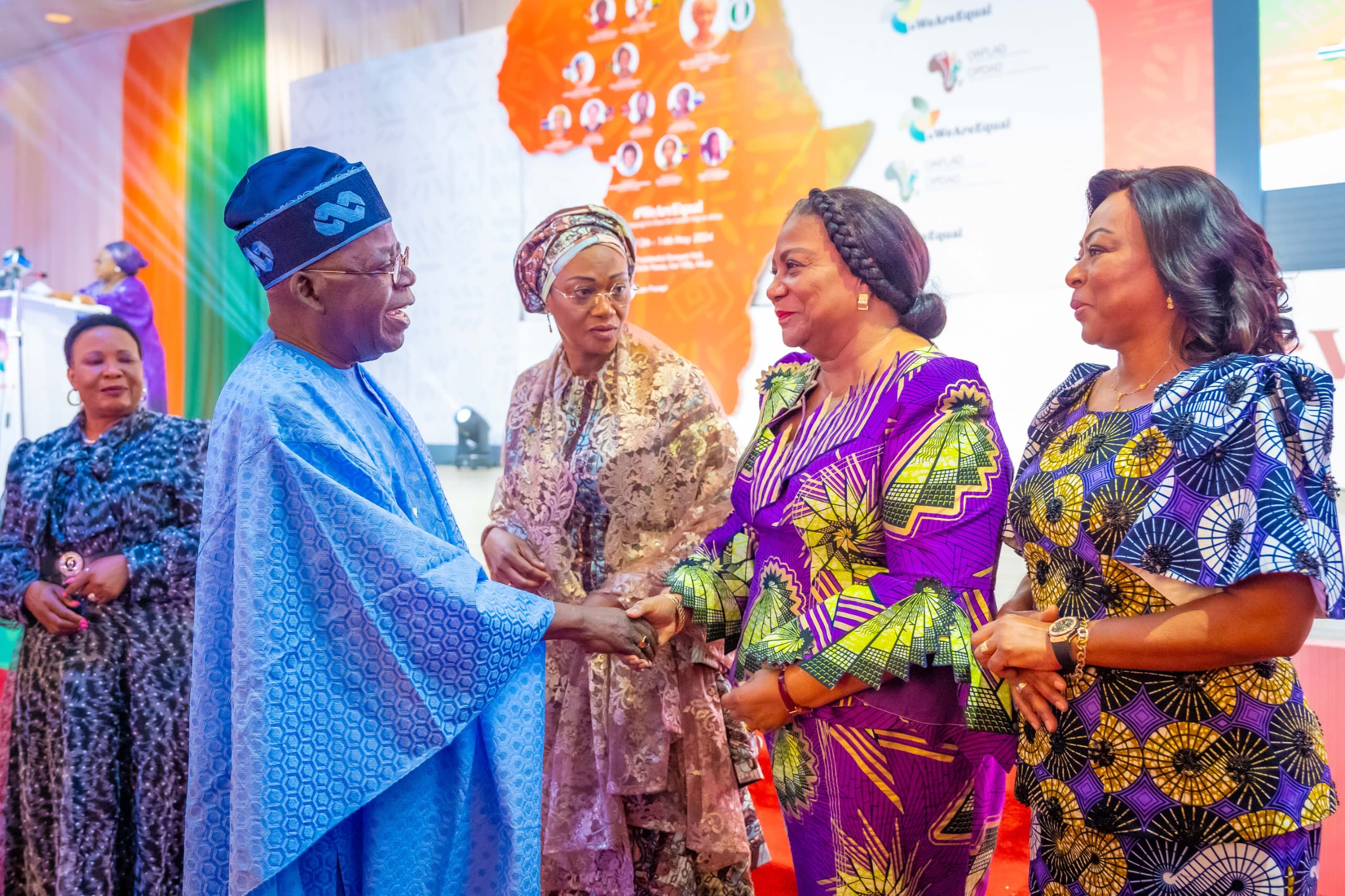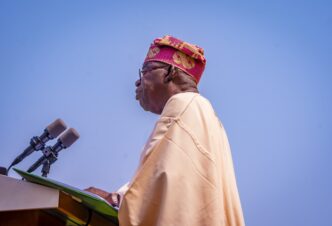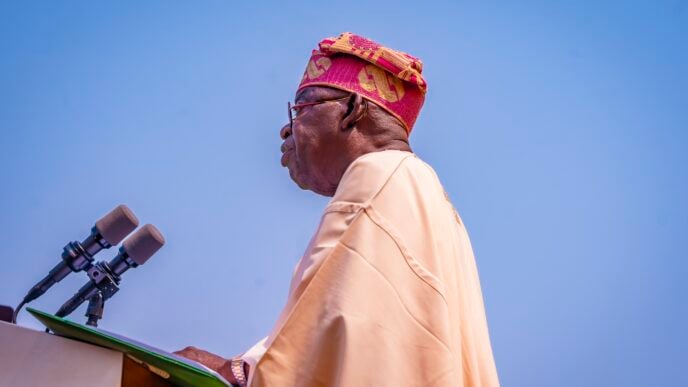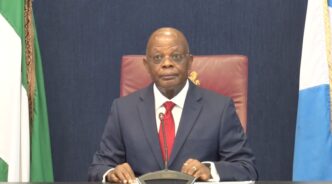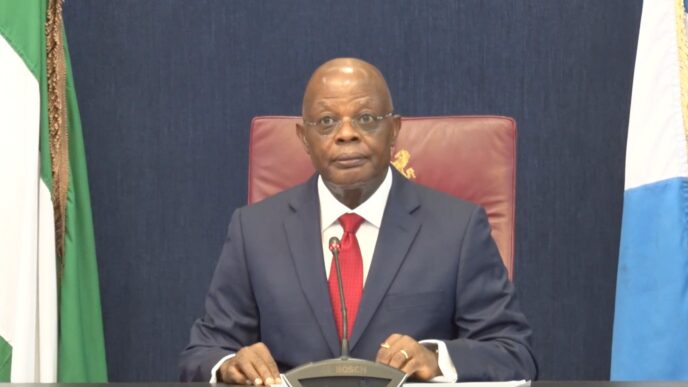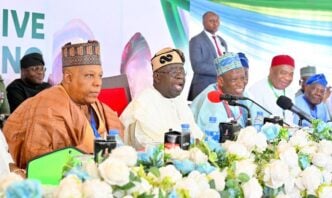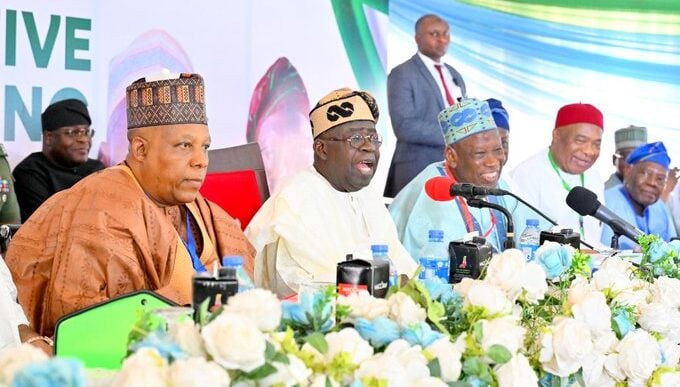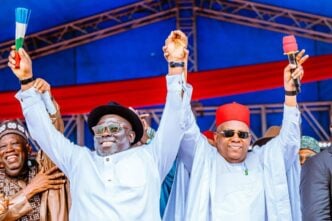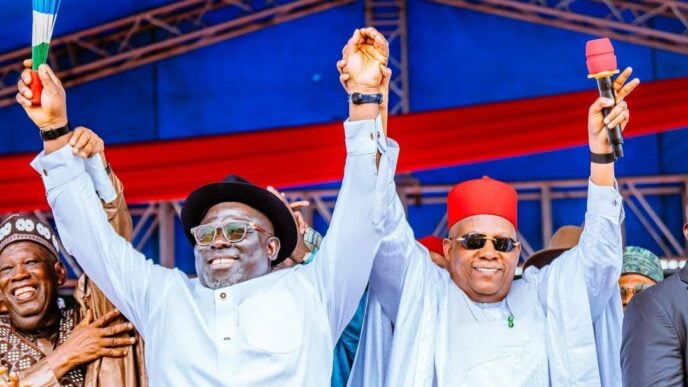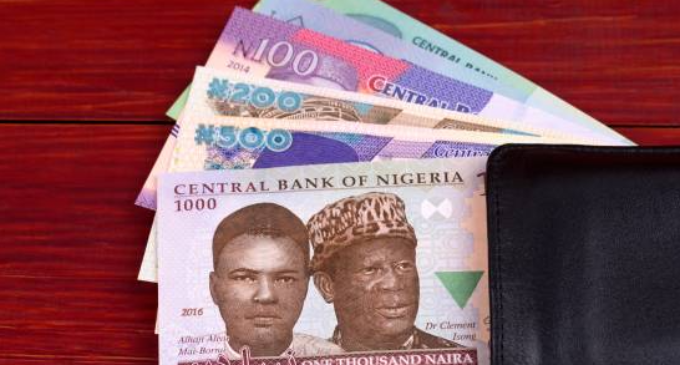Tinubu at the empowering women event recently.
I sat through a conference for women political leaders held on 23 and 24 April 2025 in Abuja, reflecting on how very challenging it is to be a woman in Nigeria with political leadership aspirations. The event, aptly themed ‘Breaking Barriers and Shaping Positive Attitudes for Inclusive Politics in Nigeria,’ was organized by the National Institute for Policy and Strategic Studies, (NIPSS) Kuru in collaboration with the Inter-Party Advisory Council (IPAC), with support from the MacArthur Foundation, Africa Office.
The discussions were lively, the challenges candidly acknowledged, and passionate opinions and recommendations freely exchanged. The dynamism in the room was palpable. No surprise, given the caliber of attendees: prominent female and male politicians, serving and former ministers, lawmakers, policymakers and officials from various states and institutions, representatives of international development agencies, academics, aspiring female leaders, male allies, and members of the media.
With such a diverse gathering came the customary flood of goodwill messages and dignitary recognitions – a familiar and deeply ingrained tradition in Nigerian events. Understanding this local context is key: goodwill messages are a critical ritual at any Nigerian conference. The event itself was timely, coming as the political landscape enters a period of negotiation, lobbying, horse-trading, and the inevitable ‘cross-carpeting’ (party defections) in preparation for the 2027 general elections.
Beyond the robust opening ceremony, the conference featured panel discussions on topical issues aligned with the theme. The discussions delved into understanding societal norms and how they act as barriers to women’s political participation; building integrity by creating a level playing field; shaping public perception through behavior change approaches; and developing strategies to enhance positive attitudes towards women’s political engagement.
Advertisement
During these discussions, several powerful points were made and passionately defended. Olumide Olaniyan, a male ally, eloquently observed, ‘Patriarchy is an old man who is unwilling to change,’ calling for patriarchy to be confronted head-on. On my part, I emphasized that gender-friendly policies must be context-specific and enforceable, and that, ‘policies are only successful if implemented; without implementation, they remain lifeless words.’
Notably, the often repeated claim that ‘women do not support women’ in politics reared its ugly head and was hotly debated. I posit that the notion that women do not support women is a generalized fallacy, a divisive myth, peddled by small-minded individuals threatened by the successes of women. However, I am not unmindful of the role of a few ‘Queen Bees’ in the Nigeria political arena – women who, while benefiting marginally from the current male-dominated system, act as gatekeepers against the advancement of other women. I would sound a cautionary note that these kinds of women be treated with utmost prudence. I also opine that because an individual considers the action of one female wrong, does not automatically mean that all women should be cast in that same mould and should not be entrusted with positions of power and responsibility. That is a very myopic outlook.
Speakers at the event stressed the importance of the girl child’s early progressive socialization. The need for women to mentor young girls, document and celebrate successful women, recognize male allies, and acknowledge the realities of gender-based harassment and violence was a recurring theme at the conference. In addition, the negative labelling of female politicians as women of loose morals or as usurpers was rightly condemned, and the sidelining of women in politics was likened to ‘clapping with one hand’ – an incredible and ineffective exercise.
Advertisement
It was agreed upon by participants that advocacy efforts must therefore target strategic stakeholders, including traditional and religious leaders, the media, and the broader public. The use of storytelling, digital campaigns, context-specific message framing, and strategic engagement with gatekeepers were recommended as effective tools to drive change. There was a consensus that societal attitudes and barriers to inclusion are not insurmountable, and that gender inclusivity must become a cornerstone of political practice. As one participant aptly stated, ‘no country can thrive walking on one leg.’
The women also agreed to leverage both traditional and social media platforms for advocacy efforts, and to strategically utilize male allies to build alliances. A clarion call was made for Nigerian women to move beyond the traditional roles of wearing aso-ebis, singing, and dancing at campaign rallies, towards real political agency as the 2027 electioneering process begins in earnest.
However, the glaring absence of women with disabilities at the conference was a sobering reminder that the conversation around inclusion remains incomplete without the voices of marginalized groups. True political inclusion will only be achieved when no woman – regardless of ability, background, or circumstance – is left behind.
The conference concluded with some key resolutions in its declaration. Political parties must outline concrete steps to foster women’s inclusion within their structures. Women must be encouraged to aspire for political offices at all levels, from grassroots governance to the presidency. Participants also emphasized the need for unity among women, noting, ‘power is not given but taken.’ Women who have already broken barriers in male-dominated spheres were commended, and the adoption of the ‘Twinning Formula’ – pairing men and women at all political levels – was recommended for immediate implementation. It also was stressed that women’s roles must move beyond tokenism to strategic positions of influence if meaningful political change is to occur.
Advertisement
The high point at the event was the unveiling of the Action Plan for the IPAC Women’s Directorate and inauguration of new zonal and state coordinators. I must commend the IPAC Directorate of Women’s Affairs, for its well-articulated mission in the plan: ‘To build a pool of capable women who support each other in winning elections, and to develop women’s capacity across party lines and at all levels of government.’ One can only hope that this noble objective materializes with the emergence of several elected women by 2027.
Amachree is the program manager, Rethinking Politics, Heinrich Böll Foundation, Abuja.
Views expressed by contributors are strictly personal and not of TheCable.
